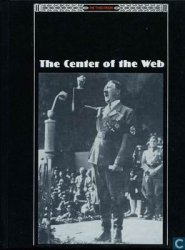Appian wrote a history of Rome’s civil wars in Greek during the second century ad.
Cicero 106—43 bc; statesman and orator, who wrote prolifically. His letters to his close friend Atticus, not originally written for publication, often give an intimate picture of his hopes and fears during the political turmoil of the late Republic.
Dio Cassius AD c.155—c.235; senator who wrote an extensive history, some of which survives only in summary form.
Diodorus of Sicily (Siculus) wrote a world history in c.60—30 BC, taking events from earliest times to Caesar’s campaigns in Gaul, reproducing traditions of earlier historians and geographers.
Eusebius AD c.265—c.339; bishop and writer on church history. His Chronicle is a world chronological table from Abraham.
Florus first or second century ad; wrote an abridgement (or epitome) of Roman history with special reference to wars waged up to the time of Augustus.
Frontinus ad c.30—103; best known for his work On Aqueducts, he also composed a guide to military strategy.
Josephus AD 37/8—after 103; Jewish historian brought to Rome from the sacked Jerusalem by Vespasian. Wrote two extensive historical works, Jewish War and Jewish Antiquities.
Livy 59 BC—AD 17; during the Augustan era, he wrote Ab Urbe Condita, a large-scale history of Rome from its foundation to 9 bc.
Macrobius one of the topics covered in Macrobius’ Saturnalia, a wide-ranging dialogue, set over the period of the Saturnalia festival of ad 383?, is witty sayings of and about famous people, taken from earlier authors.
Martial ad c.40—102; Epigrams published in ad 88.
Pliny the Elder ad 23—79; wrote an encyclopaedic work on Natural History (which survives) and a history (which does not); commander of the Roman fleet at Misenum; died at Stabiae during the eruption of Vesuvius.
Pliny the Younger c. ad 61—c. 112; nephew and adopted son of Pliny the Elder. Witness of Vesuvius’ eruption. He published ten books of Letters in the reign of Trajan.
Plutarch ad c.45—125; his Parallel Lives presented biographies of pairs of Greek and Romans. His Moralia deals with a huge range of topics.
Seneca the Younger 4 bc—ad 65; Stoic philosopher and tutor to the young emperor Nero, forced to commit suicide after falling from favour. His Natural Questions investigates natural phenomena.
Sibylline Oracles a collection of oracles in Greek hexameter verse, compiled in the fifth century ad. They are of varying date and anonymous authorship, imitating the pagan prophecies uttered by the Sibyls.
Statius AD c.45/50—96; court poet of Domitian, born in Naples, whose selection of poems known as the Silvae (ad c.93—95) often comments upon his native region.
Strabo geographer and historian, born in the Black Sea region, wrote in Greek at the time of Augustus and Tiberius (late first century BC to early first century ad).
Suetonius ad c.70—c.140; best known for his biographies of emperors, he had earlier (under Trajan) composed a work The Lives of Illustrious Men, taking grammarians, orators, poets and historians as his subjects. The biographical sketch of Pliny the Elder (included in his capacity as a distinguished historian) survives only partially.
Tacitus AD c.54—c.120; orator and senator who wrote two major historical works, the Annals, covering the period from the death of Augustus in AD 14 to that of Nero in ad 68, and the Histories from the civil wars of AD 68/9 to the death of Titus in ad 81. Neither work survives in its entirety.
Velleius Paterculus c. l7 bc—ad c.30; wrote a panegyrical summary Roman history in only two volumes, which dealt very briefly with Rome’s Republican history and focused upon more recent events. Served in the Roman army under Julius Caesar and Tiberius.
Vitruvius mid-late first century bc; wrote his work On Architecture in the early Augustan era.




 World History
World History









